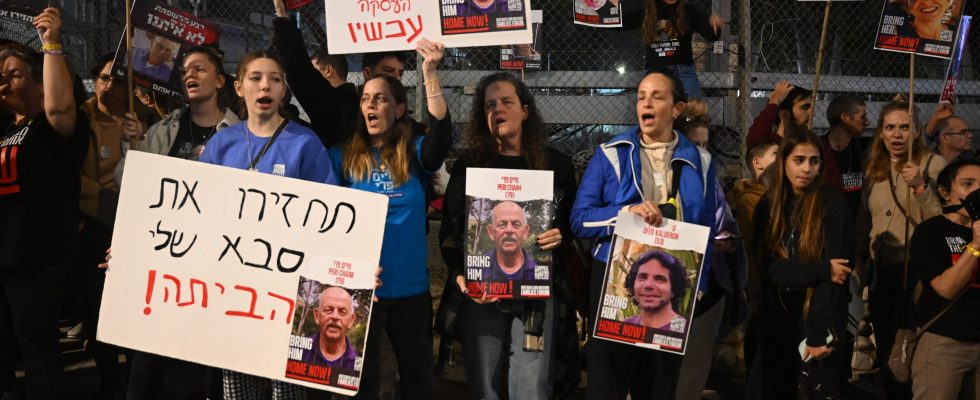The first information, in dribs and drabs, tells of the conditions of captivity in Gaza. While the truce between Israel and Hamas, in force since last Friday, allowed the release of 60 Israeli hostages on one side and 180 Palestinian prisoners on the other, some details are beginning to be made public on the detention of hostages in the Palestinian enclave under siege since October 7.
The most specific story is that of Emily, a 9-year-old Israeli-Irish girl released on Saturday by Hamas. His father, Tom Hand, spoke this Wednesday in the British daily The Sunexplaining that her daughter was now “terrified of making noise” and would only “whisper.”
Emily, who turned 9 on November 17 while a hostage, was kidnapped by Hamas on October 7 while staying with a friend, 13-year-old Hila, in Kibbutz Beeri. Her friend was also released on Saturday. “When she came back, I literally had to put my ear to her lips to hear what she was saying,” Tom Hand told the British tabloid. “She was a normal, happy, loud child but now she’s a whisperer,” he continues. “She must have been ordered to be quiet for so long that she is still terrified of making any noise.” In the interview with Sunher father finally says that she was constantly moved by Hamas in order to escape the Israeli army.
A “very poorly nutritious diet”
Other details of the conditions of detention of the Israeli hostages have also been made public, although none of the 81 Israeli or foreign hostages released since the start of the truce have so far spoken publicly about their captivity. Israeli authorities have also asked hospitals to remain discreet on the subject, for fear it will harm those still in seclusion.
However, caregivers or relatives provided some information on these conditions. According to Dr. Ronit Zaidenstein of Shamir Hospital in Israel, the 17 Thai hostages who were examined there upon their release received only a “very poorly nutritious diet” during their captivity. “The people we admitted lost a significant amount of their weight in a very short time – 10% or more.”
“Two hours of light” per day
Quoted by the Ynet news site, in an interview published Monday, Dr. Margarita Mashavi of Wolfson Hospital – where many hostages passed through upon their release – indicated that those she spoke to told her they had been held in the basement. “We only gave them two hours of light” per day, she explained, in this interview which has since been deleted from the Israeli media.
Patients told him that meals consisted of “canned rice, hummus and beans and sometimes cheese and bread, but nothing else. No fruits or vegetables, no eggs.”
A diet which is not really surprising given that, subject to several weeks of Israeli strikes, the Gaza Strip and its inhabitants are themselves largely deprived of supplies. The UN World Food Program (WFP) warned on Tuesday of a “high risk of famine” in the Palestinian enclave.
A young Franco-Israeli hostage in solitary confinement for 16 days
“Even when they asked for a pen or pencil to write to pass the time, the Hamas men refused for fear that they would pass on information. They were without television, without reading and therefore spent the time chatting among themselves,” he said. also indicated Dr Mashavi, whose hospital refused to allow her to give an interview to Agence France-Presse.
Esther Yaeli, grandmother of Etan, a 12-year-old Franco-Israeli boy released on Monday, told the Walla news site that the boy had been held in solitary confinement for 16 days. “The days he was alone were horrible,” she said. “Now Etan seems very withdrawn.”
Two hostages were hospitalized upon their release, including Elma Avraham, 84, who was rushed to hospital by helicopter and placed in intensive care. Initially saying they feared for his life “due to the lack of adequate care” for his age, doctors announced Tuesday that his condition had improved.
